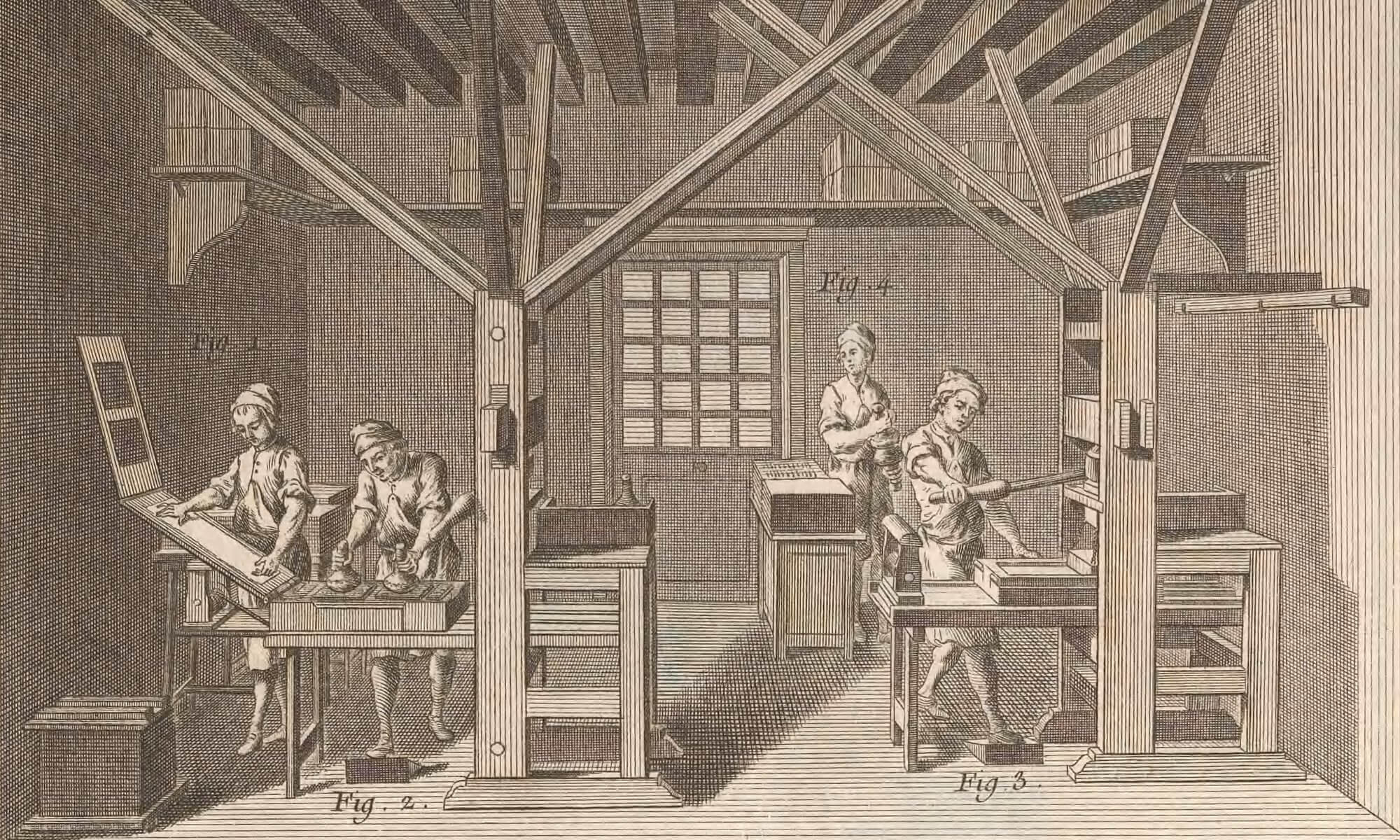Further research | Pedagogical tools
All the resources linked from on this page and its subpages are freely accessible—you don’t have to have a subscription or pay money or do anything other than be online. Pedagogical tools that I have developed are provided here so that you can use and adapt them; like the rest of the site, they are licensed CC BY-NC, so any non-commercial reuse is good as long as you cite me and Early Printed Books. I hope these all lead you in fun directions!
Further research
-
-
- Book-making videos: links to videos to help illustrate various processes, including printing, illustration techniques, and paper making
- Digital collections of early printed works: some of the major openly accessible collections of facsimile images
- Catalogs of early printed books: the major union catalogs for the period
- Online resources for bibliography: openly accessible resources for understanding bindings, paper, printer’s devices, and general book vocabularies
- Printer’s manuals: online facsimiles of hand-press era manuals for printing
-
Pedagogical tools
-
-
- Catalog wishlist: a guide for getting students familiar with using a library’s rare books catalog records
- Looking at an old book for the first time: a guide to getting comfortable working with old books when you’ve never done so before
- Looking at books: a worksheet for looking closely at rare books
- What’s a digital image?: an exercise for looking at images of books as images rather than transparent representations of a book
- Make your own quarto: an exercise for mastering the concepts of imposition
- Need some templates for printing your own quartos? InDesign template and file; Word template and file
- Folding exercises: the best way to understand format is to spend time assembling and folding examples of books
- Hamlet Q1: a color facsimile of the Huntington copy of the quarto; print the file double-sided on letter-sized paper [8.5″x11″] key details include thinking about how and why we assume from the single surviving title page that it is printed on A2r (not A1) and noting the facsimile leaf added at the end.
- Further folding examples: Shakespeare in Sheets (Illinois State U) and DIY First Folio and DIY Quarto (Folger) provide premade formes of Shakespeare’s plays to print and fold. Impos[i]tor (Folger) has some premade examples but it also allows you to input images from the Folger’s Digital Image Collection to generate your own formes.
- A book’s horizon of expectations: an exercise for thinking about what different genres of books look like and shaping reader expectations
- Working with EEBO and ECCO: A how-to lesson on working with Early English Books Online and Eighteenth-Century Collections Online, focusing both on the basics of searching and navigating interfaces and on thinking about remediation.
-
